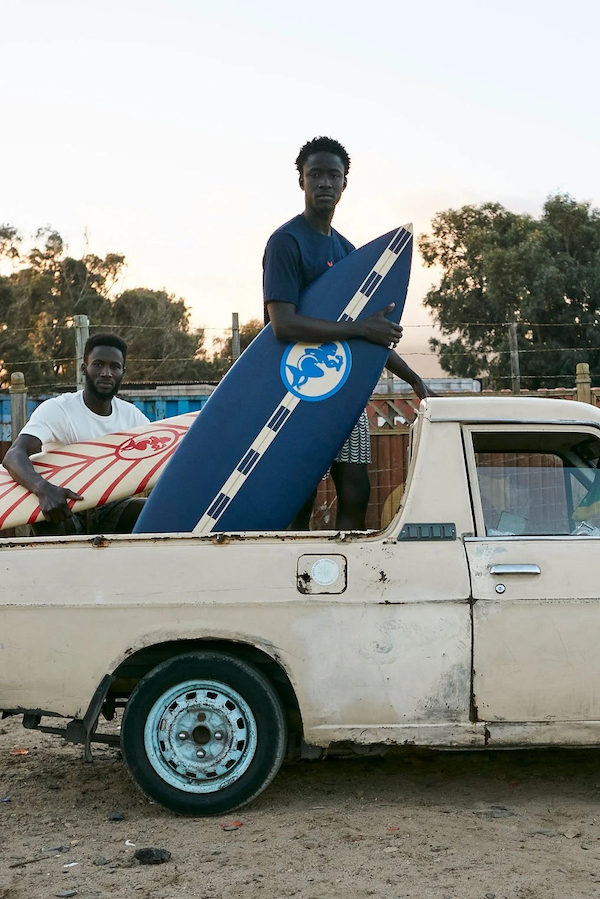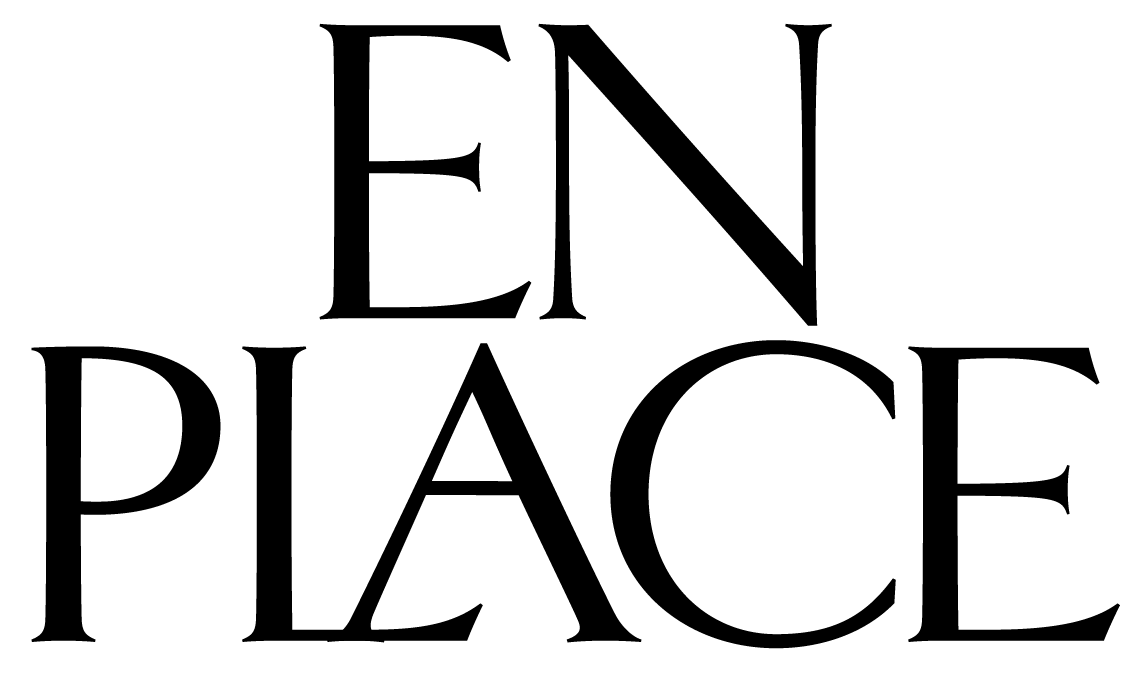Your shopping bag is empty
10% OFF YOUR FIRST ORDER WHEN YOU JOIN THE CLUB — SIGN UP NOW
WAVES OF INTENTION: HOW MAMI WATA IS BRINGING AFRICAN SURF CULTURES TO THE WORLD
- TAGS: AFRICA
- TAGS: MAKING AN IMPACT

The ocean is boundless in nature, but it is also boundless in the inspiration it awakens in our human nature. The spiritual significance that lives in waves has long been adopted by coastal communities around the world, and particularly in African surf cultures. From Madagascar to Morocco, Africa’s largely unexplored coastlines have spiritual qualities you won’t find anywhere else. It is this sense of spirituality that inspired the continent’s first surf brand, Mami Wata. The name itself means Mother Ocean, and embodies the mythical African goddess who takes the shape of a mermaid. Much like the brand founded by CEO Nick Dutton, creative director and artist Peet Pienaar, and writer Andy Davis, Mami Wata is a guardian of sea creatures and natural environments.
Today Mami Wata designs and manufactures all of their surf-inspired clothing and products in Africa to empower local communities and protect the coastline. They believe that a break in the ocean is a powerful economic resource, a term they’ve dubbed afrosurfonomics. This is the story of how Mami Wata inspires surfers from around the world to come to Africa and give back to the continent the brand calls home.
THE CULTURE OF FINE ART AND THE CULTURE OF SURFING ARE FAR FROM SYNONYMOUS. HOW DID YOUR EXPERIENCE AS A FINE ARTIST LEAD YOU TO WORKING WITH NICK AND BUILDING MAMI WATA?
I was a fine artist but I kind of got bored with art because I felt that it only spoke to a small group of people. It’s a very in-circle world. It felt like no one on the outside knew what art was about. For me, the idea of working with brands and exploring design became very exciting. I think it gives you much more of an impact as a creative person and the ability to affect more people. I started by researching design in South Africa. I’m South African, it is where I grew up and my family has been there for over 400 years. In South Africa and in most places in Africa, especially as it relates to design, I noticed that most people sought to be inspired by western cultures. What I quickly realized was that if you’re aspiring to be something else you’re always going to be a second-hand version of that because it’s not really part of your culture. I started looking at what happened before brands became such a big thing. I researched the principles of design, why people designed in certain ways, what the meaning of design was and is in Africa. I spent three or four years doing this research. When me and Nick met, we used that research to create Mami Wata. I thought that surfing was an exciting place but felt generic at the time. We decided to move into that space and turn it upside down to change it for the better.
HOW DID YOUR RESEARCH INFORM YOUR PROCESS AS CREATIVE DIRECTOR FOR THE BRAND?
I am very conscious about what I’m doing. I think a lot of creative directors just try to make something look cool, and if it looks cool, then they think it’s fine. I am very considerate about our impact. I think about the impact of things like using different colors, where we manufacture, and what things like streetwear mean in Africa. I think it is very important that I’m very sensitive around race issues and African issues.
HOW DID YOU COME UPON SURF CULTURE IN AFRICA?
There are so many waves in Africa, it is probably the most unexposed place for surfing in the world. There is no surf brand from Africa, and aside from that there is also no sort of global brand like Nike out of Africa. We think those ideas are very important for a continent, or for any place, because they tell positive stories. Brands have the ability to expose that side of things. We definitely wanted to make a brand for Africa and we wanted it to be around surfing.
WHAT IS AFROSURONOMICS?
It is looking at a break in the sea as a resource. A lot of people go to a place to surf, but they also sleep somewhere, eat somewhere, they travel there, it’s an economic resource. We look at it like skiing in Europe. It’s a massive industry and the impact can be really supportive of local communities. We’re looking at the potential of surf tourism in Africa and how we can enhance that in a good way.
WHAT MAKES SURF CULTURE IN AFRICA SO UNIQUE?
I think one of the things I learned when I was interviewing surfers around the continent for our Afrosurf Book is that Africa's approach to surfing is much more spiritual than in other cultures. People are very respectful towards the sea and it has a spiritual meaning which changes things. The beaches here are also a very different place. It’s not a place just for leisure, it’s a place for work, for exercise. There are a lot of activities that happen on the beaches in Africa that don’t happen anywhere else in the world.

“HOW DO YOU TREAT PEOPLE AROUND YOU? HOW DO YOU SEE PEOPLE? I THINK IT'S A QUESTION OF ASKING YOURSELF WHY YOU THINK WHAT YOU THINK.”

DID YOU GROW UP AROUND SURF CULTURE?
I actually didn't! I think it used to also be a very in-circle thing for a long time which is why it didn’t move forward. I surf a little bit, I wouldn’t say I’m a great surfer or was originally in the scene, but I completely understand it.
WHAT WAS THE MOST REWARDING PART OF BRINGING THE AFROSURF BOOK TO LIFE?
The limitations of it were actually the most rewarding. It was done during COVID-19 and we couldn’t travel. We didn’t have a budget so we had to use Kickstarter. It forced us to connect with lots of different people around the continent. Photographers, writers, surfers. We built a community through that. It was very surprising and rewarding, now we’re so connected to people all around the continent.
HOW CAN TRAVELERS HONOR THE ARTISTS, DESIGNERS, AND SURFERS IN THEIR DESTINATION?
Most travelers visiting remote African surf spots today are photographers and their production crews. I think the best way to honor the local community is to work with locals. Go without production and get locals to help produce. Otherwise you come in like an alien, extract, and go away with great images but without any connection. Find ways to depend on locals. Get someone to drive you around versus renting a car. You learn so much more about how different cultures work by working with local people.
CAN YOU SHARE SOME OF YOUR FAVORITE SECRET SPOTS TO SURF IN AFRICA?
There are so many. Liberia, Sierra Leone. Gabone is probably the most wild, there are elephants and hippos that will surf alongside you there. It is very wild.
HOW DOES MINDFULNESS APPLY TO SURFING?
I don’t think mindfulness is linked to any specific subject, it’s more of a lifestyle. Your life won’t just be surfing alone, so if you really want to be mindful, it’s something you have to consider in all aspects of your life. How do you treat people around you? How do you see people? I think it’s a question of asking yourself why you think what you think.
WHAT DOES MINDFULNESS MEAN TO YOU?
It means to question my ways of living, doing, and seeing the world. It is asking the right questions. How can I do better? How can I treat people better? How can I be a better person in the world in terms of what I eat, shop, and do?
HOW DO YOU APPLY THAT TO MAMI WATA?
We try to bring it into every aspect of the company. Here’s a small example. We’ve been creating newsletters, and most companies create ones that just become clutter and a waste. They don’t bring anything to the world. For Mami Wata we tap into researchers from all over the continent to research the history of design in Africa, and connect it to the stories we create so that we can leave a legacy for the history of African design. In that way we breathe new life into that cultural context and are actually contributing to something. It is the little things like that help us make sure we’re being mindful. That goes for things like our cotton as well. We research where it comes from in Africa and make sure all the money goes back to the continent. If we’re doing a project like Afrosurf Book we’re linking it up with NGOs like Waves for Change, and all of the profit from that book is going to them.
WHAT ARE YOU MOST HOPEFUL FOR AND LOOKING FORWARD TO WITH MAMI WATA?
We want to establish a global brand for Africa. We want to be a brand that has a positive effect on the continent and brings money to the continent. That is the end goal.







